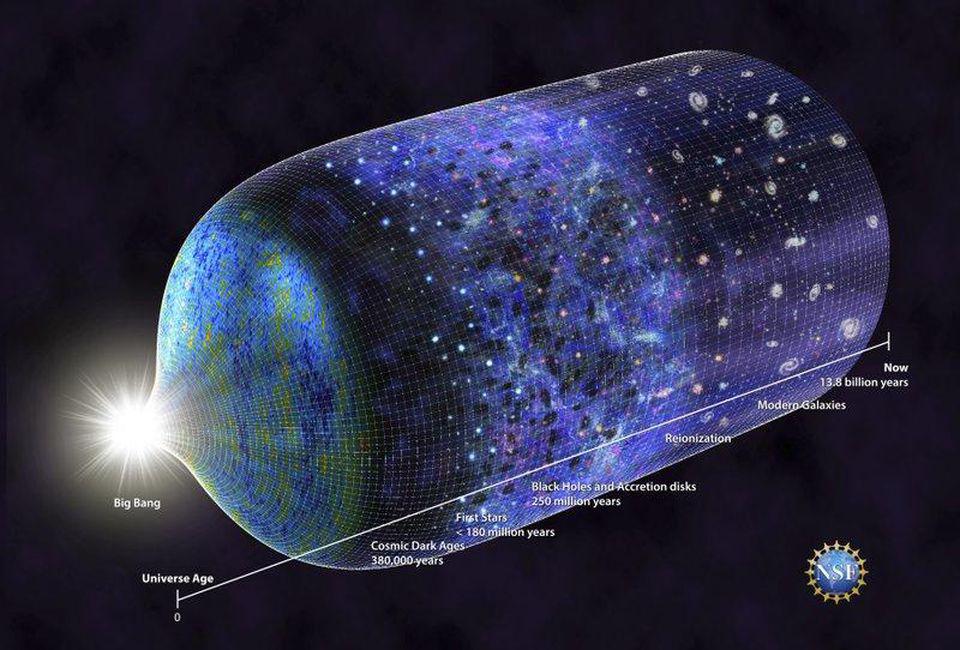
This idea, of a singular beginning to space, time, and the universe, was long known as the Big Bang.
In the beginning, he realized, the universe was a hot, dense, rapidly expanding collection of matter and radiation, and everything we see around us emerged from this primordial state.
The physics that takes place during the earliest stages of the hot Big Bang imprints itself onto the universe, enabling us to test our models, theories, and understanding of the universe from that time.
After all, if we can trace the hot Big Bang back some 13.8 billion years, all the way to when the universe was less than 1 second old, what’s the harm in going all the way back just one additional second: to the singularity predicted to exist at a time when the universe was 0 seconds old?
If the Big Bang began from a singularity, we have no explanation; we simply have to assert “the universe was born this way,” or, as physicists ignorant of Lady Gaga call it, “initial conditions.”.We’re always free to appeal to initial conditions as the explanation for anything, and say, “well, the universe was born this way, and that’s that.” But we’re always far more interested, as scientists, if we can come up with an explanatory for the properties we observe.This phase stretches the universe flat, gives it the same properties everywhere, gets rid of any pre-existing high-energy relics, and prevents us from generating new ones by capping the maximum temperature reached after inflation ends and the hot Big Bang ensues.
Since it was hypothesized back in the 1980s, inflation has been tested in a variety of ways against the alternative: a universe that began from a singularity.But where that gets really interesting is if we go back to look at our idea of “the beginning.” Whereas a universe with matter and/or radiation — what we get with the hot Big Bang — can always be extrapolated back to a singularity, an inflationary universe cannot.The idea that “the universe began from a singularity, and that’s what the Big Bang was,” needed to be jettisoned the moment we recognized that an inflationary phase preceded the hot, dense, matter-and-radiation filled one we inhabit today.
This new picture gives us three important pieces of information about the beginning of the universe that’s different from the traditional story that most of us learned.First off, the original notion of the hot Big Bang, where the universe emerged from an infinitely hot, dense, small singularity and has been expanding and cooling, full of matter and radiation ever since, is incorrect.
The early universe, before the hot Big Bang, underwent a phase of exponential growth, where any pre-existing components to the universe were literally “inflated away.” When inflation came to an end, the universe reheated up to a high, but not arbitrarily high, temperature, giving us the hot, dense, expanding universe that grew into what we recognize today.
The Big Bang still happened a very long time ago, but it wasn’t the beginning we once supposed it to be